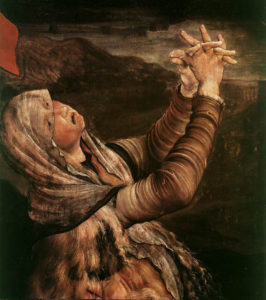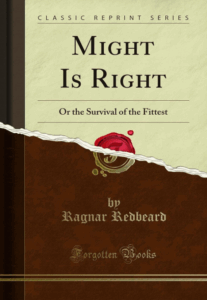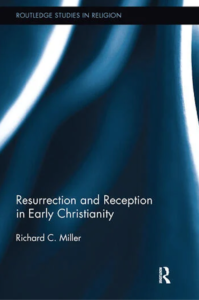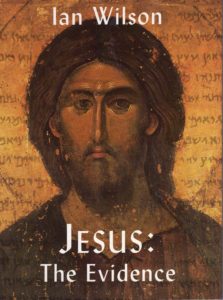The communism of antiquity, 4
by Alain de Benoist
 The ancients believed in the unity of the world, in the dialectical intimacy of man with nature. Their natural philosophy was dominated by the ideas of becoming and alternation. The Greeks equated ethics with aesthetics, the kalôn with the agathôn, the good with beauty, and Renan rightly wrote: ‘A system in which the Venus de Milo is only an idol is a false system, or at least a partial one, because beauty is worth almost as much as goodness and truth. With such ideas, a decline in art is inevitable.’ (Les apótres, p. 372). The ‘new man’ of Christianity professed a very different vision of things. He carried within himself a conflict, not the everyday one that forms the fabric of life, but an eschatological, absolute conflict: the divorce from the world.
The ancients believed in the unity of the world, in the dialectical intimacy of man with nature. Their natural philosophy was dominated by the ideas of becoming and alternation. The Greeks equated ethics with aesthetics, the kalôn with the agathôn, the good with beauty, and Renan rightly wrote: ‘A system in which the Venus de Milo is only an idol is a false system, or at least a partial one, because beauty is worth almost as much as goodness and truth. With such ideas, a decline in art is inevitable.’ (Les apótres, p. 372). The ‘new man’ of Christianity professed a very different vision of things. He carried within himself a conflict, not the everyday one that forms the fabric of life, but an eschatological, absolute conflict: the divorce from the world.
 Early Christianity extends the messianic idea present in Judaism in an exacerbated form, due to a millennial expectation. In the words attributed to Jesus we find literal quotations from the visions of the Book of Enoch. For the first Christians, the world, a mere stage, a vale of tears, a place of unbearable difficulties and tensions, needed compensation, a radiant vision that would justify (morally speaking) the impotence of here below. That is why the earth appears as the field on which the forces of Evil and Good, the prince of this world and the heavenly Father, those possessed by the devil and the sons of God, confront each other: ‘And this is the victory that has overcome the world: our faith’ (I John V, 4). The idea that the world belongs to Evil, later characteristic of certain Gnostics (the Manicheans), appears frequently in the first writings of Christianity. Jesus himself affirmed: ‘I do not pray for the world…, as I am not of the world’ (John XVII, 9-14). St. John insists: ‘Do not love the world, nor the things that are in the world. If anyone loves the world, the love of the Father is not in him. For all that is in the world, the lust of the flesh, the lust of the eyes, and the pride of life, is not of the Father but is of the world.’ (I John II, 15-16.) ‘Do not be surprised if the world hates you.’ (Ibid. III,13). ‘We know that we are of God, and the whole world lies in the power of the evil one.’ (Ibid. V, 19.) Later, the Rule of St. Benedict will state as a precept that monks must ‘make themselves strangers to the things of the world’ (A saeculi actius se facere alienum). In the Imitation of Christ we read: ‘The truly wise man is he who, in order to gain Christ, considers all the things of the earth as rubbish and dung.’ (I, 3, 5).
Early Christianity extends the messianic idea present in Judaism in an exacerbated form, due to a millennial expectation. In the words attributed to Jesus we find literal quotations from the visions of the Book of Enoch. For the first Christians, the world, a mere stage, a vale of tears, a place of unbearable difficulties and tensions, needed compensation, a radiant vision that would justify (morally speaking) the impotence of here below. That is why the earth appears as the field on which the forces of Evil and Good, the prince of this world and the heavenly Father, those possessed by the devil and the sons of God, confront each other: ‘And this is the victory that has overcome the world: our faith’ (I John V, 4). The idea that the world belongs to Evil, later characteristic of certain Gnostics (the Manicheans), appears frequently in the first writings of Christianity. Jesus himself affirmed: ‘I do not pray for the world…, as I am not of the world’ (John XVII, 9-14). St. John insists: ‘Do not love the world, nor the things that are in the world. If anyone loves the world, the love of the Father is not in him. For all that is in the world, the lust of the flesh, the lust of the eyes, and the pride of life, is not of the Father but is of the world.’ (I John II, 15-16.) ‘Do not be surprised if the world hates you.’ (Ibid. III,13). ‘We know that we are of God, and the whole world lies in the power of the evil one.’ (Ibid. V, 19.) Later, the Rule of St. Benedict will state as a precept that monks must ‘make themselves strangers to the things of the world’ (A saeculi actius se facere alienum). In the Imitation of Christ we read: ‘The truly wise man is he who, in order to gain Christ, considers all the things of the earth as rubbish and dung.’ (I, 3, 5).
In the midst of the great artistic and literary renaissance of the first two centuries, Christians, as outsiders who pleased to be so, remained indifferent or, more often, hostile. Biblical aesthetics rejected the representation of forms, the harmony of lines and volumes; consequently, they had only a disdainful look on the statues that adorned squares and monuments. For the rest, everything was an object of hatred. The colonnades of temples and covered walks, the gardens with their fountains and domestic altars where a sacred flame flickered, the rich mansions, the uniforms of the legions, the villas, the ships, the roads, the works, the conquests, the ideas: everywhere the Christian saw the mark of the Beast. The Fathers of the Church condemned not only luxury, but also any profane work of art, colourful clothing, musical instruments, white bread, foreign wines, feather pillows (had not Jacob rested his head on a stone?) and even the custom of cutting one’s beard, in which Tertullian sees ‘a lie against one´s own face’ and an impious attempt to improve the work of the Creator.
The rejection of the world became even more radical among the early Christians because they were convinced that the Parousia (the return of Jesus Christ at the end of time) was going to take place immediately. It was Jesus himself who had promised it to them: ‘Assuredly, I say to you, some who are standing here will not taste death until they see the Son of Man coming in his kingdom.’ (Matthew XVI, 28). ‘Assuredly, I say to you, this generation will not pass away until all these things have happened.’ (Matthew XXIV, 34). In view of this, they repeated the good news more and more. But the end of all things is at hand (I Peter IV, 7). ‘It is the last time’ (I John II, 18). Paul returns again and again to this idea. To the Hebrews: ‘Therefore cast not away your confidence, which has great reward… For yet a little while, and He that shall come will come, and will not delay’ (Hebrews X, 35-37). ‘Not forsaking the assembling of ourselves together… but exhorting one another, and so much the more as you see the day approaching’ (Ibid., X, 25). To the Thessalonians: ‘Stand firm, for the coming of the Lord is at hand.’ To the Corinthians: ‘Brothers, the time is short; therefore let those who have wives be as though they had none…’ (I Cor. VII, 29). To the Philippians: ‘The Lord is near. Do not be anxious about anything…’ (Phil. IV, 5 and 6).
In his dialogue with Trypho, Justin affirms that Christians will soon be gathered in Jerusalem, and that it will be for a thousand years (LXXX – LXXXII). In the second century, the Phrygian Montanus declares that he foresees the imminence of the end of the world. In Pontus, Christian peasants abandon their fields to await the day of judgment. Tertullian prays pro mora fines, ‘that the end may be delayed.’ But time passed and nothing happened. Generations disappeared, one after another, without having seen the glorious advent; and faced with the continual delay of its eschatological hopes, the Church, giving proof of prudence, ended by resigning itself to placing the Parousia in an undetermined ‘beyond.’ Today only Jehovah’s Witnesses repeat on a fixed date: ‘Next year in the Jerusalem of heaven.’









